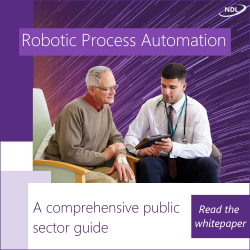Researchers from the Alan Turing Institute are working on a data analytics project to support the Greater London Authority in planning for an exit from the coronavirus lockdown.
The team from the institute’s Data Centric Engineering programme has launched Project Odysseus in a partnership with the charity Lloyd’s Register Foundation, along with researchers from the universities of Warwick, Cambridge and University College London, and using Microsoft Azure Cloud and AI services.
It is focused providing a firm understanding of ‘busyness’, assessing activity in London before and after the lockdown and providing details on changes in behaviour.
The overall goal is to help manage the crisis and a return to normality, partly through an early warning system to trigger communications campaigns in the event that people give up social distancing too early. Longer term, it is aimed at providing a springboard for economic recovery in the city.
Much of the data used in the project is already in the public domain, such as from vehicle and transport movements, traffic cameras, economic activity and data running from selected apps. The programme involves the use of machine learning algorithms, statistical time-series analysis and image processing.
The participants are aiming to create an API which the GLA, Transport for London (TfL), London Data Commission and Office for National Statistics may query for access to the data sources and the analysis outputs. These will be integrated into the London Datastore, with one of the uses being to support the London Air Quality project.
The Alan Turing Institute said the project all has data privacy and ethical protections planned in.
Important work
GLA chief digital officer Theo Blackwell said: “City Hall has been doing important work with the Turing on air quality and this is now being repurposed to help deepen our understanding of Londoners’ movements during the lockdown.
“Bringing together open data gives us another tool to understand how the capital is responding to public health measures, as well as how our high streets and shopping centres are doing, as we move from restrictions to recovery."
Image by Mai-Linh Doan, CC SA 2.0 France through Wikimedia





